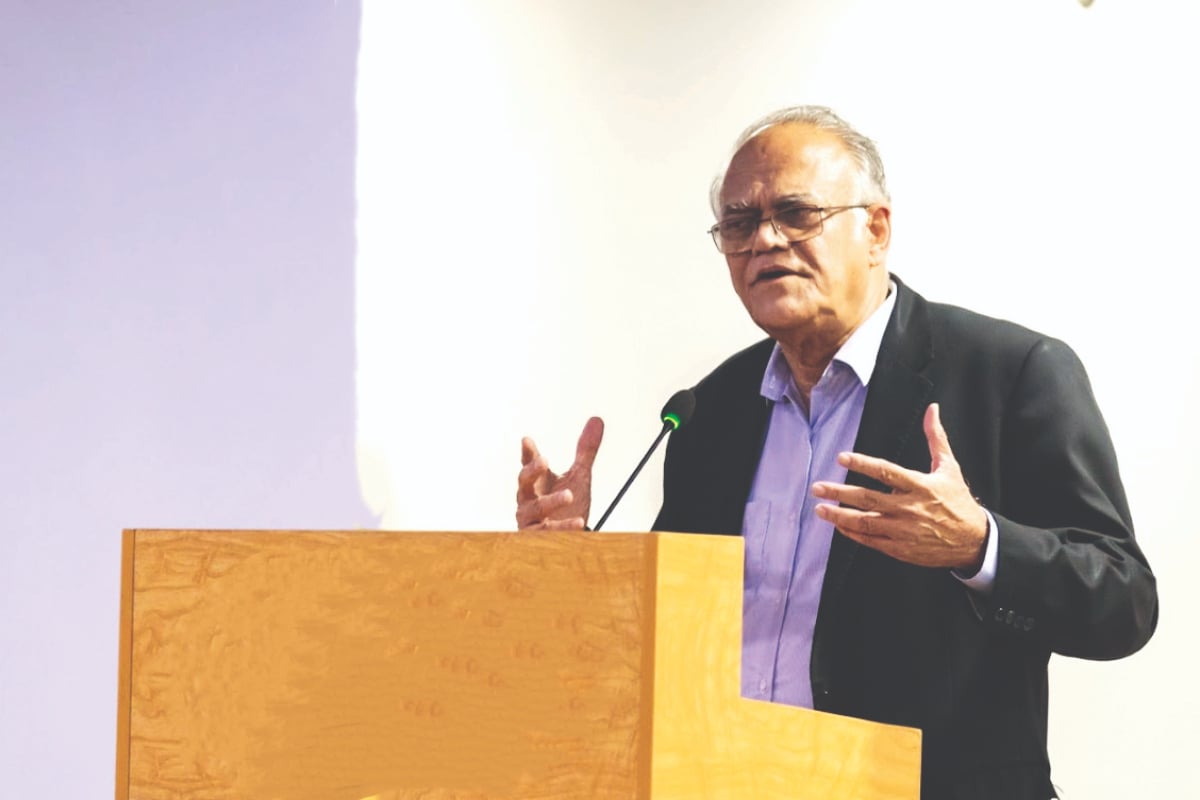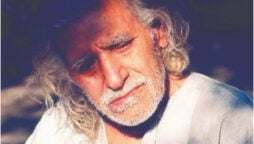
Javed Jabbar
Javed Jabbar, Pakistan’s former senator, leading writer and public intellectual, talks to BOLD in his exclusive interview with Taha Kehar.
BOLD: How do you view the notion of patriotism?
Javed Jabbar: Throughout human history, individuals in a politically defined territory are expected to, of their own will, express affinity, loyalty, and love for the entity in which they reside. This is entirely understandable. It is when patriotism becomes chauvinistic and jingoistic that it becomes potentially disruptive and even dangerous. But we must remember that scores of Pakistanis have held strong, unflinching beliefs in patriotism and in being patriotic, particularly those in the Armed Forces, paramilitary forces and the police, who have sacrificed their lives to defend even an inch of soil. That is patriotism in one of its finest forms, if not the finest.
In what ways has our perception of patriotism as a nation evolved over the decades?
In the initial years, there was an unquestioning patriotism, a blind faith in the vision of a new homeland for the Muslims of South Asia. This was particularly strengthened by the enormous disadvantages with which the new state was born, many of which were inflicted by the British and the Congress Party-led government of India. That injustice solidified the sentiment of patriotism because solidarity in the face of inimical forces provoked a strong reaction to remain committed to the vision, whatever the odds.
With time, patriotism began to be assailed by doubts about the potential survival of a two-winged state. From a singular, shared patriotism in 1947-48, we went into steadily segmented interpretations of patriotism. Post-1971, patriotism has been renewed, but remains segmented, depending on which part of the population, and on which days of the calendar the issue is measured. For example, nationalist parties may demand autonomy or de facto secession, which is the antithesis of patriotism’s ideals, but on August 14 or March 23, or when a Pakistani cricket team is playing India, or even another country, almost everyone cheers for Pakistan, regardless of ethnic or political viewpoint. Patriotism varies in some respects; in others, it remains consistent and stable.

Do you believe the younger generation has lost its patriotic spirit? If yes, how can it be revived?
Contrary to the implication in your question, the vast majority of the youth is keen to learn about history and passionately committed to tradition, the country, social justice and reform. At various youth-leadership conferences and seminars, side by side with a critical scepticism, there is also an abundant energy that comes through. Without ostensibly wearing their patriotism on their sleeves, and even as they face numerous economic and social problems, young people are deeply attached to their national identity.
What inspired you to write ‘Pakistan – Unique Origins; Unique Destiny?
In 2010, when I had finished presenting a lecture at a school on the subject of Pakistan’s unusual origins and evolution, a 14-year-old teenaged boy stood up to ask: “Sir, is there a book I can read which conveys what you have just told us? Because most of what you’ve said is not in any of our textbooks”. That comment stunned me. It also pleased my petty little ego that I had presented some new perspective to him. I was ashamed that of the nine books I had published by then, not a single one had focused on the unique dimensions of our country’s origins.
The book has a unique structure. As per your introductory note, ‘Pakistan – Unique Origins; Unique Destiny?’ is “neither a chronological nor a comprehensive history of the origins of Pakistan”. In what ways has this proved to be a strength rather than a weakness of the book?
By liberating myself from the conventional, somewhat pedantic – yet unavoidable – chronological sequencing that marks customary prescribed textbooks, I was able to take a larger, panoramic view of what else was happening, and what has already occurred in other parts of the world with regard to the formation and evolution of nation-states. I was able to position Pakistan’s emergence in that context and on the global canvas, rather than only in the relatively narrow confines of a Muslim-Hindu framework.
‘Pakistan – Unique Origins; Unique Destiny?’ includes blank pages to encourage readers to share their insights and observations on key subjects. What are some of the most intriguing responses that readers have scribbled into these pages?
Perhaps because it is unusual for books to offer blank pages for readers’ own views, readers wouldn’t take the trouble to mail these pages to the publisher or author. I have thus received limited feedback in that form. However, a variety of comments have been made during live sessions where some of those present have taken the time to read the book.
Among the thought-provoking comments has been the query as to whether the nation-state is proving to be deeply divisive, corrosive of fraternal sharing, and prone to populism and fascism. This is partly true. Another view is about whether Pakistan has pursued the security-state orientation too much as compared to a welfare-state orientation. On its basic thesis of our uniqueness, there has never been any substantive negative feedback.

‘Pakistan – Unique Origins; Unique Destiny?’ also includes your essay ‘100 Years of Pakistan: A Visualization of 2047’. The essay was written in 1997. How different would your outlook on the subject be in 2022?
In the 25 years since I wrote that essay, the more things have changed, the more they remain the same. But much has changed in the past quarter century, some of it for the better. General Musharraf’s tenure introduced enhanced representation of women in the legislatures in all tiers — a significant advancement that needs to be further improved. The media landscape has been transformed, for better and for worse, and requires major reforms.
However, governance capacity in the face of high population growth requires revolutionary zeal and urgency to address. Yet, the essay’s proposal to nurture a political leadership that abjures any connection with material assets for 25 years, and is then compensated upon retirement, should invite consideration.
In what ways can we foster a positive image of Pakistan in the coming years?
First, by redoubling our efforts to refine and reform our own structures, attitudes and practices. Second, by building on the cosmopolitan and cheerful facets of our national personality to promote the pursuit of new knowledge. Third, by ensuring a mutually respectful civil-military equilibrium. Fourth, by ruthlessly enforcing and ensuring universal quality education with a balanced curriculum, and the use of new technologies, even video games and Artificial Intelligence (AI), to build capacity. Fifth, by investing cash in social media and electronic media globally to project the numerous positive aspects of our great nation.

Catch all the Breaking News Event and Latest News Updates on The BOL News
Download The BOL News App to get the Daily News Update & Live News.












 Read the complete story text.
Read the complete story text. Listen to audio of the story.
Listen to audio of the story.